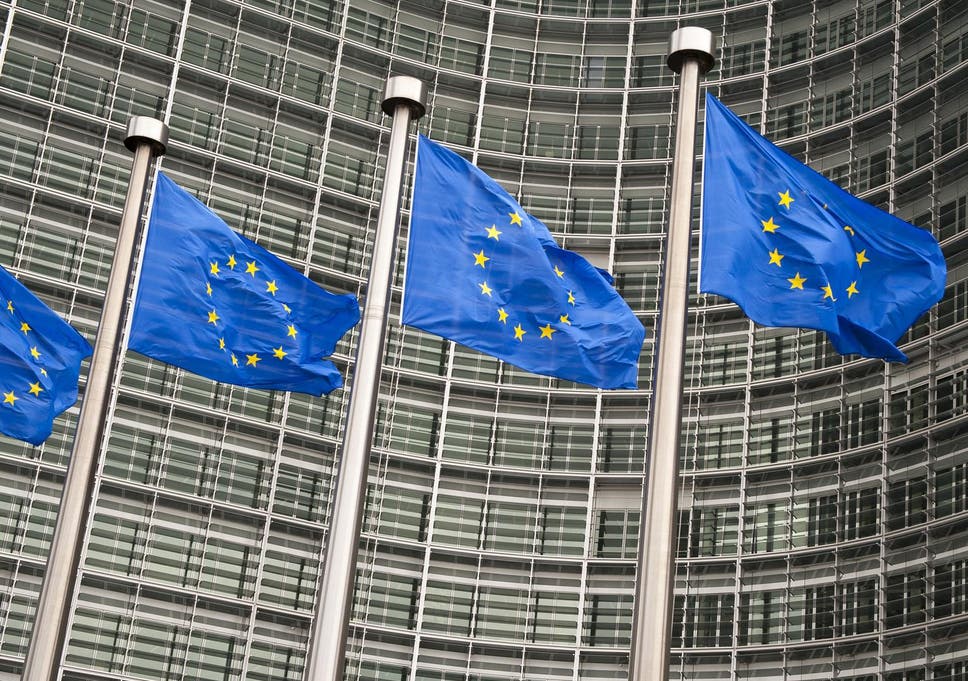
The destruction of foreign state flags, including that of the European Union, and the denigration of national anthems are punishable by a fine and up to three years in prison, in a move by the German government to protect the symbols of other nations.
The vote in Germany’s parliament was passed just before midnight on Thursday and was in response to a 2017 anti-Israel rally held on the streets of Berlin, the German capital, where police watched as protesters burned Israeli flags.
“No Israeli flags may burn in Germany,” said Social Democratic member of parliament Johannes Fechner, who was part of chancellor Angela Merkel’s coalition government, which brought the amendment to the floor.
Seated at a safe social distance, lawmakers voted for an amendment to protect foreign state flags, as well as the EU’s (burning the German flag is punishable by up to five years). German law had already protected foreign flags when displayed by embassies, or in some other ceremonial capacities such as at sporting events.
“The burning of flags in public has nothing to do with peaceful protest,” Christine Lambrecht, the country’s justice minister, said in a statement.
“Burning flags hurt the feelings of many people,” she said.
The amendment is expected to pass Germany’s upper house in June before being signed by the president and written into the federal criminal code.
Japan and Denmark have had laws protecting foreign flags for decades, although in Denmark, the Danish national flag — known as the Danneborg — is not protected. Norway overturned a ban on burning foreign flags in 2008.
While some critics see the German amendment as a heavy-handed move against freedom of opinion, the right-wing Eurosceptic party Alternative for Germany, known by its German initials AfD, has objected to the inclusion of the EU flag in the amendment. It says the law symbolically raises the bloc’s flag to same level of importance as the German state flag.
After the United States declared its intention to recognise Jerusalem as the capital of Israel in 2017, about 1,000 protesters took to the streets of Berlin, in what was described as a pro-Palestine protest. Although 300 police officers accompanied the march, they were unable to prevent a group of protesters from burning a homemade Israeli flag. Protesters also burned an Israeli flag in front of the Brandenburg Gate, a Berlin landmark.
Those images spread around the country, drawing outrage.
“It was unbearable that the police could not intervene when Israeli flags were burned outside the Brandenburg Gate in 2017,” said Josef Schuster, the head of the Central Council of Jews in Germany, when the amendment was first proposed this year.
On Tuesday, Germany celebrated 55 years of relations with the state of Israel, a bilateral relationship celebrated there like few others. After the horrors of the Holocaust, Israel’s right to exist is seen as one of the fundamental tenets of the modern German state.
But not everyone agreed that the flag issue was the domain of a federal law.
“We of the left are of the opinion that not every instance of bad taste and not every offensive behaviour belongs in our criminal law — and that includes denigration of flags and symbols,” a Bundestag member from The Left party , Niema Movassat, said before the vote.
On the other side of the house, the AfD member Fabian Jacobi denounced the inclusion of the EU flag in the measure as “a criminal provision against criticism of the EU”.
The New York Times







